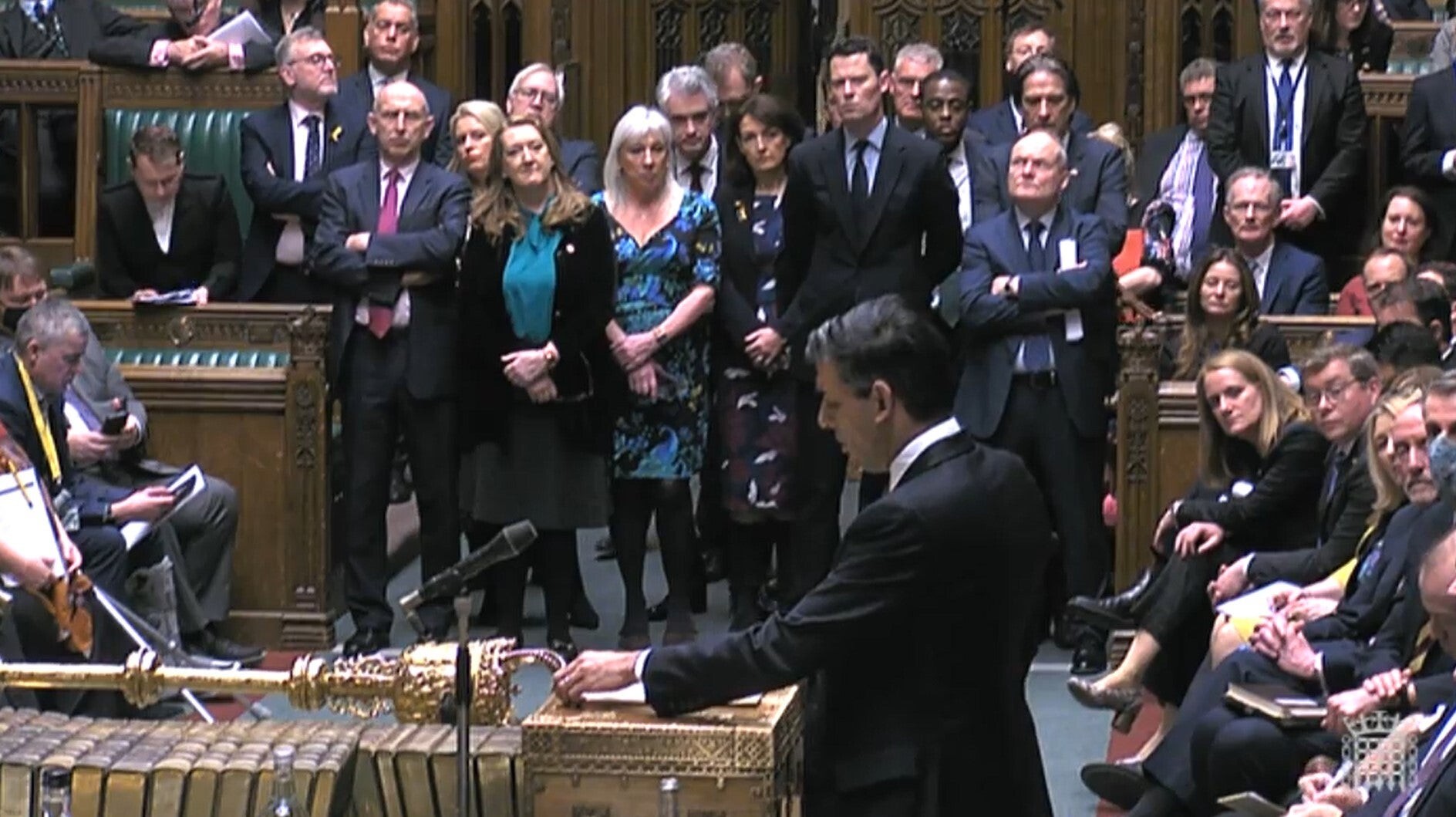At a glance: Key points from the 2022 spring statement
The Chancellor delivered his spring statement to the Commons.

Your support helps us to tell the story
From reproductive rights to climate change to Big Tech, The Independent is on the ground when the story is developing. Whether it's investigating the financials of Elon Musk's pro-Trump PAC or producing our latest documentary, 'The A Word', which shines a light on the American women fighting for reproductive rights, we know how important it is to parse out the facts from the messaging.
At such a critical moment in US history, we need reporters on the ground. Your donation allows us to keep sending journalists to speak to both sides of the story.
The Independent is trusted by Americans across the entire political spectrum. And unlike many other quality news outlets, we choose not to lock Americans out of our reporting and analysis with paywalls. We believe quality journalism should be available to everyone, paid for by those who can afford it.
Your support makes all the difference.Here are the main points from Chancellor Rishi Sunak’s spring statement:
– Mr Sunak said by the end of the current Parliament in 2024, the Government would cut the basic rate of income tax from 20p in the pound to 19p which he said was “fully costed and fully paid for in the plans announced today”.
– The Chancellor said he would “stand by” households, and announced fuel duty would be cut by 5p per litre for a year up until March 2023.
– Mr Sunak said that “thanks to Brexit” he was able to remove VAT on materials such as solar panels, heat pumps or insulation to help bring down energy costs, as well as on wind and water turbines. He told the Commons: “We will abolish all the red tape imposed on us by the EU.”
– He also said he is doubling the Household Support Fund to £1 billion “to do more to help our most vulnerable households with rising costs” with “targeted support”.
– The Chancellor said he would publish a “tax plan” as he announced the national insurance contributions (Nics) threshold would rise by £3,000 “to fully equalise the Nics and income tax thresholds not incrementally over many years but in one go this year”.
– Hoping to prompt a new “culture of enterprise”, Mr Sunak said there would be tax cuts “on business investment and innovation with final decisions to be announced in the autumn Budget” and a reform of research and development tax credits.
– The employment allowance for small businesses will rise to £5,000, the Chancellor said.
– Mr Sunak focused on “security”, linking having a strong economy to standing up Russian President Vladimir Putin over his invasion of Ukraine. He said what underpins the security enjoyed in the UK was “the strength of our economy” which he said the Government has a “moral responsibility” to use to support Ukraine.
– He warned, however that sanctions on Russia “of unprecedented scale and scope” would have an impact on the economy, saying they “are not cost-free for us at home” and were “a risk to our recovery”.
– He told the Commons that The Office for Budget Responsibility has downgraded the growth forecast for this year to 3.8%.
– But Mr Sunak said downgraded growth forecasts had “not affected our strong jobs performance” as he said unemployment was back to levels seen before the pandemic.
– The Government is “meeting all our fiscal rules”, Mr Sunak said, but he added the nation must prepare for “the economy and public finances to worsen, potentially significantly” because of the impacts of Russia’s invasion of Ukraine.
– The cost of borrowing is set to continue to rise. The Chancellor said £83 billion will be spent on debt interest, “the highest on record and almost four times the amount we spent last year”.
– Mr Sunak said underlying debt is expected to fall steadily from 83.5% of GDP in 2022/23 to 79.8% in 2026/27. He added borrowing as a percentage of GDP is 5.4% this year, 3.9% next year, then 1.9%, 1.3%, 1.2% and 1.1% in the following years.